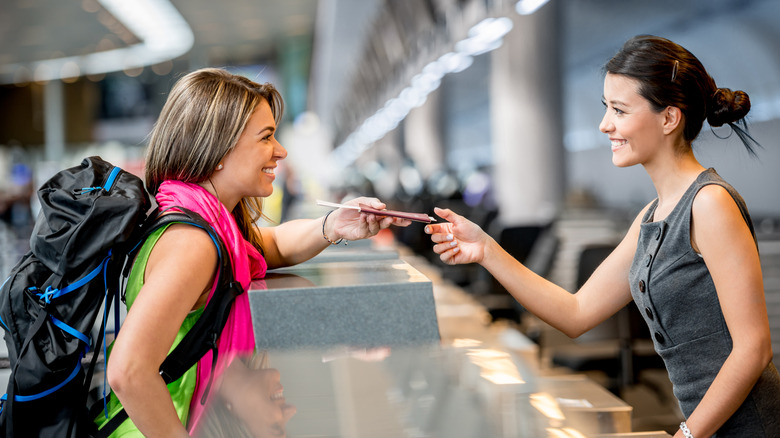Why Booking A Flight Through A Third-Party Website Isn't Your Best Bet, According To A Travel Agent - Exclusive
Online travel agencies (OTAs) helped transform the landscape of modern travel. From the large metasearch engines, such as Expedia and Kayak, to the budget-minded fare aggregators of Skyscanner and Momondo, these third-party players can make travel planning seem almost effortless. With a push of a few buttons on an OTA, you can package a flight, hotel stay, rental car, and even restaurant reservations, creating a carefully calculated trip. After all, your savvy travel-planning skills are pretty top-notch.
The main selling point of OTAs is convenience, and modern travelers have lined up to buy this selling point, as OTAs still currently dominate the travel-booking process. However, not everything that glitters is gold, and this promise of third-party convenience can be a bit gilded — especially when it comes to booking flights.
In an exclusive interview, Explore spoke with travel agent Victoria Fricke, of Vic's Vacations, to discuss why booking a flight through a third-party site may actually lead to serious inconveniences. "One of the most common mistakes I see travelers make is not booking directly with an airline, often booking through a third party like Expedia or Kayak," Fricke explained to Explore. "What that traveler is unknowingly doing is giving up any negotiating power with the airline."
You may find yourself in flight-change limbo
When you book through a third party, you're actually a customer of that OTA rather than the airline. If you'd like to make any voluntary flight changes or, in the case of a flight cancellation, explore alternative flight options, you may need to make these changes through the OTA.
"If there's a cancellation, rather than the ticket counter being able to simply book them on the next flight, they will [tell] the client to go back to that third party to rebook them," Fricke said. "Not only does this cause the client to typically end up with a less than desirable new flight, but it can put the financial obligation of that change on them."
That's right. When you book with an OTA and not the airline directly, you may be financially responsible for an airline's cancellation. You can think of it like this: because you're not a customer of the airline, it's not the OTA's fault that your flight was canceled. While you'll probably be able to find another flight, somehow and in some way, you may be charged for the itinerary change.
Third parties aren't exactly problem-solvers
Fricke, who shares helpful tips on her Instagram account, suggests that if you went to an airport ticket counter or called the airline directly due to a canceled or delayed flight, they'd probably tell you to speak with a customer service agent of your OTA. We should mention that, in some cases, the airline can and will help you directly. However, in other cases, good luck speaking with a customer service rep (human) of an OTA in a timely manner to discuss complicated itinerary changes. While a refund from a booking site due to cancellation isn't usually an issue, as this may even be automated, contacting an OTA to quickly find flight alternatives can be a dubious prospect at best.
To be fair, larger OTAs, such as Expedia, have improved their customer service in recent years, but they're still acting as a middleman in an issue between you and the airline. "To put it mildly, this can cause a headache and frustration that is never worth the $10-$30 that the booking engine might have saved ticket-wise," Fricke explained.
If you need a solution fast, the airline — not a third party — will have more insight into possible solutions to your unique problem. And, when you book directly with the airline, you're their actual, factual customer. Although often maligned, airlines can impress with their creative problem-solving abilities, especially when it's their problem to fix.


